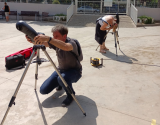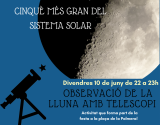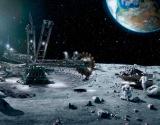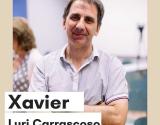In this UB Alumni Dialogues conference, Xavi Luri, director of the Institute of Cosmos Sciences of the University of Barcelona (ICCUB), will review the history of astrometry focusing in the results of the Gaia mission, that is discovering our galaxy with an unprecedented detail. The rector’s delegate for scientific outreach, Gemma Marfany, will present the event that is open to the general public with a priority for the members of Alumni UB.
TALK: «A HISTORIC PERSPECTIVE ON ASTROMETRY: HOW DO WE MEASURE THE DISTANCE TO THE STARS?»
Astrometry is the branch of astronomy that studies the position and motion of stars. It is an ancient discipline; in fact, for many centuries, astronomy as a science was essentially astrometry: the work of astronomer was focused on measuring the positions of stars. The main asset at their disposal were astronomical catalogues, compilations of the positions and magnitudes of stars and planets. The oldest catalogues go back to ancient Mesopotamia. Throughout history, many civilizations have contributed to the completion and refinement of these data assemblings, up to the limit allowed by the technological capacities of each time period (the predecessors of big data). On the early 20th century, people believed that we had reached the edges of knowledge and thus astrometry appeared to be a closed discipline. However, the access to space and particularly, the Hipparcos and Gaia missions of the European Space Agency (ESA) have rekindled astrometry and have revolutionised astronomy.
By Xavi Luri (ICCUB-IEEC)
When? Monday, April 4th at 6 pm
Where? Aula Magna, Edifici Històric de la Universitat de Barcelona
Registration at the link. Free activity with limited places. UB Alumni members have priority.
About the author
Xavier Luri is a professor at the Faculty of Physics of the University of Barcelona, and director of the Institute of Cosmos Sciences. He is part of Gaia's research group at the ICCUB, where he researches on the processing and analysis of Gaia's data, and also on the design and implementation of mission archive operations. In orbit since 2013, the mission of the European Space Agency Gaia aims to make a detailed map of our galaxy. You can read the latest news on Latest of Gaia.







